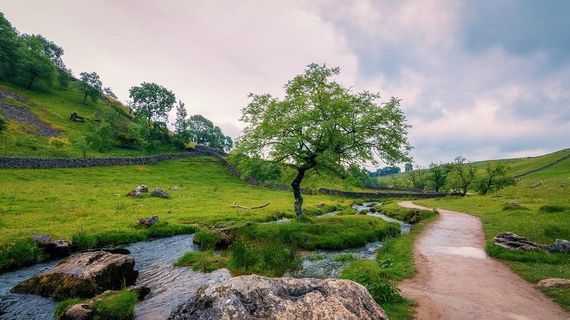The István Markó Interview: Possibly the Best Thing You Will Ever Read on Global Warming
Posted on: Tuesday, October 31, 2017 CommentsOne of the biggest lies put out by the global warming scaremongers is that the science is on their side. No it isn’t. And if you’re in any doubt at all you should read this interview with the brilliant scientist István Markó. It tells you all you need to know about the science of global warming.
Here are some highlights from the interview:
CO2 is not – and has never been a poison
Each of our exhalations, each of our breaths, emits an astronomical quantity of CO2 proportionate to that in the atmosphere (some >40,000 ppm); and it is very clear that the air we expire does not kill anyone standing in front of us. What must be understood, besides, is that CO2 is the elementary food of plants. Without CO2 there would be no plants, and without plants there would be no oxygen and therefore no humans.

Plants love CO2. That’s why the planet is greening
Plants need CO2, water, and daylight. These are the mechanisms of photosynthesis, to generate the sugars that will provide them with staple food and building blocks. That fundamental fact of botany is one of the primary reasons why anyone who is sincerely committed to the preservation of the “natural world” should abstain from demonizing CO2. Over the last 30 years, there has been a gradual increase in the CO2 level. But what is also observed is that despite deforestation, the planet’s vegetation has grown by about 20 percent. This expansion of vegetation on the planet, nature lovers largely owe it to the increase in the concentration of CO2 in the atmosphere.
There have been periods where the CO2 concentration was many times higher than now. Life thrived.
During the Jurassic, Triassic, and so on, the CO2 level rose to values sometimes of the order of 7000, 8000, 9000 ppm, which considerably exceeds the paltry 400 ppm that we have today. Not only did life exist in those far-off times when CO2 was so present in large concentration in the atmosphere, but plants such as ferns commonly attained heights of 25 meters. Reciprocally, far from benefiting the current vegetation, the reduction of the presence of CO2 in the atmosphere would be likely to compromise the health, and even the survival, of numerous plants. To fall below the threshold of 280 or 240 ppm would plainly lead to the extinction of a large variety of our vegetal species.
Climate change is natural
Over the last 12,000 years, what we have witnessed is an oscillation between warm and cold periods, thus periods with rising and declining sea levels. Incontestably, sea and ocean levels have been on the rise since the end of the Little Ice Age that took place approximately from the beginning of the 14th century until the end of the 19th century. At the end of that period, global temperatures started to rise. That being said, the recorded rise is 0.8 degrees Celsius and is, therefore, nothing extraordinary. If the temperature goes up, ocean water obviously dilates and some glaciers recede. This is something glaciers have always done, and not a specificity of our time.
Read more about this great interview, at: Breitbart
Source: Breitbart
Add Comment
If you already have an account, please LOGIN.
If not, you may consider creating on. It’s FREE!
» Login
» Sign up